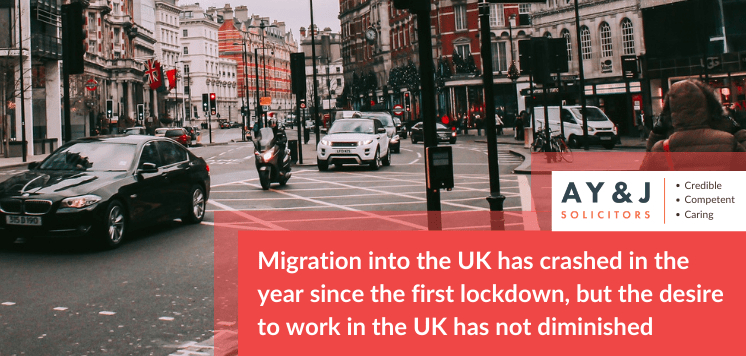As the acceleration of the UK’s coronavirus vaccine scheme continues to defy expectations, business leaders will be hoping to see the economy shift up a gear as working practices return to normal.
However, there have been warnings that progress could be scuppered for thousands of workers up and down the UK due to a little-known change brought about by Brexit.
A childcare crisis is developing as the au pair program falters under the government’s new immigration rules – which has the potential to affect almost 90,000 UK workers who rely on it.
Au pairs – who came almost exclusively from EU and EEA nations to improve their English while earning a little money – now find themselves unable to enter the country under the ‘skilled worker’ route as they do not meet the minimum salary requirements.
Traditionally, they have ‘earned’ around £100 per week pocket money on top of free board and lodgings with families, in return for childcare duties.
A spokesperson for the British Au Pair Agencies Association said that some parents will have to give up work because they cannot afford to have a nanny, adding: “It’s a mutually-beneficial cultural exchange programme. They are not a financial strain on the UK state – we don’t understand why the government won’t put forward an au pair visa.”
And with the system now the latest victim of Brexit, a leading immigration lawyer warns of the knock-on effect this will have on businesses – but says there may be ways to overcome the situation.
Mr Yash Dubal, director of A Y & J Solicitors, said, “This seems to be one of those things that has taken many people by surprise following Brexit, but it was inevitable given the new points-based system. Unfortunately, au pairs don’t meet the absolute minimum earnings of £20,480 to qualify under the skilled worker route. I would add that this route does not seem to fit with au pairs anyway, given that they are not skilled workers and do not have to have formal qualifications in order to be employed by families.
“This has the potential to be an enormous drain on businesses if they have staff who will now not be able to find suitable and affordable childcare options to allow them back to work – especially those who will be looking to go back to the office rather than continue to work from home.
“It’s vital that the government finds a solution and fast.”
Until then, Mr Dubal says that one solution could be employing international students whose visa allows them to work. Usually, those who are enrolled on a full-time course at degree level or above are permitted to work on a part-time basis during term time and full time outside of term time. This may be a temporary solution for families who require au pairs to take care of their children.
Mr Dubal adds: “Prior to a change in immigration rules due to freedom of movement in 2008, there was already an au pair visa route that specifically allowed migrants to come to the UK and work as au pairs. This was replaced by the Youth Mobility route which significantly limited the number of migrants who are eligible. Currently, only nationals of Canada, Australia, New Zealand, Hong Kong, South Korea, Japan, Monaco and Taiwan are eligible to come to the UK under the Youth Mobility route. Those who are eligible for the Youth Mobility visa will be granted leave for a period of 2-year with the right to work in the UK, which can act as a good alternative for families who are looking for au pairs. However, with the end of freedom of movement and the significant reduction of access to the labour market, there is no reason why the au pair route cannot be brought back to allow other nationals to work in the UK on a temporary basis.”
Au pairs have been able to work in the UK for around 50 years, since an agreement was signed between European nations to allow them short stays of between three and 12 months, with many attending language schools.
In addition to childcare, many au pairs also undertake other household duties but are not allowed to work more than 30 hours per week – although there are claims that some host families do not follow these regulations.
Mr Dubal adds, “There are a great many British workers who will be potentially affected by this, including my colleagues working in the legal profession, if we don’t continue this great reciprocal scheme. Everyone benefits, both the young people who have an opportunity to broaden their horizons, and parents who are able to make use of the affordability of au pairing to be able to focus on their careers. The government must act if we are to get the cogs of British industry working at full speed again post-coronavirus.”









